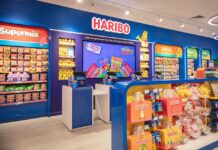Recently GFK’s closely-watched consumer confidence index hit -40, its lowest score since records began in 1974. With the cost of living on the rise, many consumers will be driven by price points and could start shopping around for the best deal rather than buying from or visiting their typical favourite brands. While it’s essential to accept that some customers will look to other brands in this current economic landscape, it will forever be true that the best customer is the one you already have.
One vital way of keeping these customers engaged is to reward their loyalty.

Why brand loyalty is so important
We’ve already touched on brand loyalty being a key method of retaining customers during this turbulent climate. But what is also so critical about brand loyalty is the impact it has on the way your customers talk about your brand. With the internet offering unlimited choice for products, goods and services, customers are constantly looking for the best option to suit them. However, if they’ve heard from a trusted source that a brand is offering a similar product for a similar price with a much better customer experience, they may be swayed into buying from that brand instead.
Fix the roof before it’s raining
Brands should take a proactive, rather than reactive approach, to increase customer loyalty. Take the example of a family considering where they could cut back on their monthly spend. They’ll likely draw-up a list of where money is being spent and ring-fence certain outgoings as untouchable – they’ll still need to pay their mortgage or rent and continue buying food for the household every week. It’s the leftovers which are vulnerable. A business on that list which may have been close to the chopping block, may be saved by a realisation that it sent a £10 gift voucher to say happy birthday a few months ago. They may not have even spent the voucher yet, but that memory of being rewarded when other companies didn’t do so goes a long way.
The trick is to provide customers with meaningful rewards at a time that matters, even if they aren’t expected. A brand that delivers on customer experience and exceeds their expectations when it comes to rewarding loyalty is much more likely to continue succeeding, even when money is tight.
Utilise data
To ensure an experience is to an individual customer’s liking it’s key to use the first-party data you have for them when they visit you online. This will allow you to create a seamless experience that’s as pleasant as if they were there in person.
Take restaurants that have their own online ordering system, with first-party data they can customise the experience to each person and share their information directly with consumers rather than with a third-party app. This allows them to improve their experience with each subsequent order they make and ensure that consumers receive relevant updates and offers to keep them coming back.
We also know consumers go back to certain hospitality and leisure venues because they’re close to where they live or work. It’s therefore critical that brands use location based messaging to ensure that they reach consumers with relevant offers in the channels they prefer, at the times they’re most likely to be choosing where to go for lunch or dinner.
Retention over acquisition
In the current climate, retention should be where brands focus the majority of their efforts. Acquisition of course comes with increased revenue but that counts for nothing if the once loyal customer base has left after feeling unloved during a time when money is tight and spending decisions have to be made.
On the other hand, focusing on rewarding loyal customers in the moments that matter actually goes a long way to supporting acquisition naturally. Word of mouth goes a long way, so if customers tell their friends and family they’ve received a loyalty bonus from a business, they’re increasingly likely to look into the company themselves.
I’m a strong believer in loyalty schemes which give people context or goals which clearly highlights what they’re working towards. It’s all well and good amassing ‘points’ at a supermarket chain but does anyone really understand what the points equate to? Having clear goals in place will drive loyalty, as people are less likely to cancel if they know they’re only a week or so away from a free trip to the cinema.
The little touches really can go a long way. It’s the companies that get this right over the coming months that will help them thrive through 2022 and beyond.















